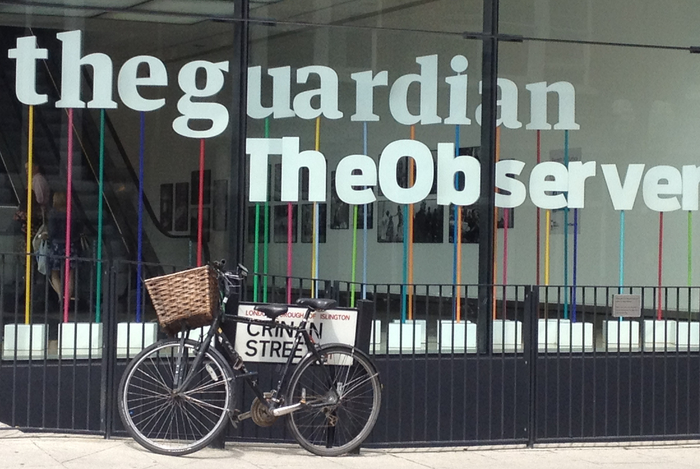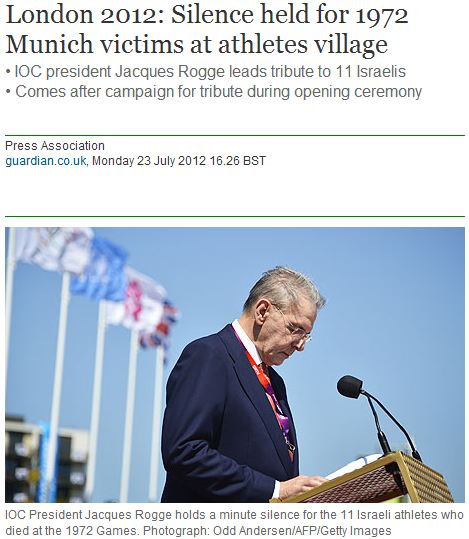A Guardian review, by Alex Preston, of a new book by Israeli writer David Grossman (“More Than I Love My Life by David Grossman review – the personal is political”, Aug. 24) includes the following quote, reflecting Preston’s take on the novel and Israeli fiction more broadly:
The Israeli novelist Ayelet Gundar-Goshen said: “I don’t think it is possible to write anything in Israel without referring to politics, and if you were to decide to write something without referring to politics, then that in itself is a political decision.”
First, the Guardian writer only cited part of the quote by Gundar-Goshen. The full quote was a response to this question posted by an interviewer: “Do you think Israel’s fiction must engage with her politics?”
Here’s her response:
I think Israel is a very political country. We are in the middle of a huge conflict zone and we have two thousand years of history of very difficult politics. I don’t think it is possible to write anything in Israel without referring to politics, and if you were to decide to write something without referring to politics, then that in itself is a political decision. I don’t mean to say that fiction has to limit itself only to the current conflict. Writing is a political act, but it’s much wider than everyday politics: it’s a political act because it deals with morals, with people, with power and knowledge.
As you see, the full quote by Gundar-Ghoshen complicates the desired take-away from the truncated quote, qualifying her view on the intersection between the personal and the political in Israel. She appears to be saying that novels (in Israel and, presumably, elsewhere) are necessarily political insofar as fiction deals with “people, power and knowledge”.
But, beyond the misleading quote, the review is indicative of how British media outlets covering the Israeli-Palestinian issue often insist on politicising every element of Israeli life in terms of ‘the conflict’.
As we noted yesterday on these pages, this myopic framing is often seen in the BBC’s coverage of Israel’s COVID-19 vaccine roll-out. It’s also evident in the positive media coverage given to attempts by BDS campaigners to prevent apolitical Israeli artists from performing abroad, and in the fuel given by journalists to the “pinkwashing’ charge against Israelis who boast of the country’s progressive record on LGBT issues.
Further, as our colleague Gilead Ini persuasively argued in an essay published last year, even the most benign reference to, yet alone praise of, Israeli cuisine or street food often elicits hateful reactions by online activists and even journalists. As Ini aptly observed, in addition to the charge that what’s called ‘Israeli food’ merely ‘cultural appropriates’ traditional Palestinian or Arab foods, the criticism is also rooted in something far darker: a broader campaign to deny the humanity of its Jewish citizens.
And, this gets to the heart of the matter.
The CST’s Dave Rich wrote the following in a 2016 op-ed about the antisemitism problem in the Labour Party under Jeremy Corbyn, but it’s also relevant in the context of the media’s frequent insistence that, unlike in other regions of the world, everything in Israel is political:
The basic idea behind most modern antisemitism is that Jews must be up to something. Whatever Jews say and do can’t be taken at face value: they must have some ulterior motive or hidden agenda that needs to be uncovered.
Similarly, when Israelis excel at protecting their population from the ravages of COVID, the story isn’t about the state’s efficient and innovative healthcare system that other countries can learn from, but about a racist decision to prioritise the health of their own citizens over that of the Palestinians. Talented Israelis dancers from the Batsheva Dance Company aren’t merely performing their art in London, but are complicit in a process of hoodwinking audiences into ‘believing’ Israeli is a normal country. Tel Aviv’s internationally renowned Pride Parade isn’t a rare example in the Middle East of acceptance towards LGBT communities, but a PR campaign orchestrated by Jerusalem and its supporters to whitewash the occupation.
The same impulse which, as Rich explained, is continually in search of Jews’ ‘true’ motives and insists that Jews must constantly demonstrate their loyalty and virtue similarly informs the Manichean framing of Israeli behavior, one which reduces every interaction, endeavor or opinion – be it quotidian or profound – to how it impacts the Palestinians. As with the former, the latter is a test designed so that the pupil will fail.





It can be taken for granted that any review that appears in The Grauniad by any writer of any Israeli product (example: a book) will be slanted – either subtlely or blatantly – to reflect unfavourably on the State of Israel.